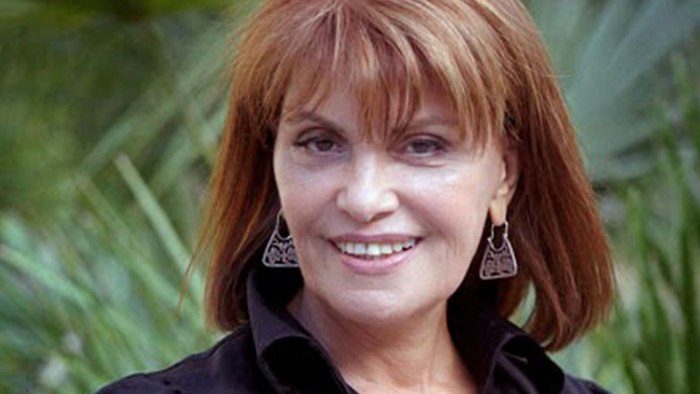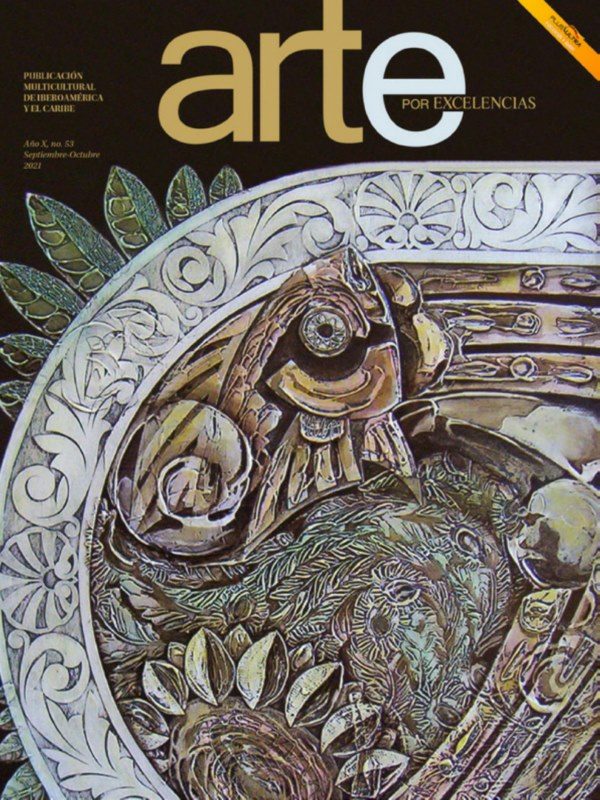Although she has not acted for more than three years, which is illogical with a successful artistic record, the first Cuban actress Mirtha Ibarra found in other areas of creation a space not to stop. She has been writing songs for a long time but she has not taken them out because of her fears, although she wants to give them to someone who really defends them.
She works with all her resources in a cinematographic script and in one of her most endearing occupations: the promotion and dissemination of the entire work of Tomás Gutiérrez Alea, Titón, her companion in life for 23 years. The Ibarra reveals to us the creation of the Tomás Gutiérrez Alea Audiovisual Promotion and Research Center, in a house that the Office of the Historian of Havana has given to it, with the consent of the Ministry of Culture, to place all of Titón's work in deposit. and promote his research.
"There will be Titón's entire library and books about his career. The Center will have a room for the projection, debates and colloquia on films. We intend to grant scholarships and prizes and make all that available to the community. From Titón I have his stationery unpublished since the 50's until his death; letters he sent and others sent back by different personalities such as Robert Redford, the Goytisolo, Carlos and Antonio Saura, Alfredo Guevara, Julio García Espinosa ... The Center will be located on Paula Street, a magical place ».
Mirtha Ibarra, beyond being a distinctive Cuban film actress, also became an intellectual with a critical and accurate view of the island's cultural phenomena. She discusses and analyzes with the reason given by the years and for more than two decades next to a man who exposed our weaknesses on the big screen, but at the same time provided the keys to be better human beings.
How was it possible for you to start making movies with Titón after eight years at his side?
We were both very afraid to join our professions. I was a theater actress and he was a film director. When I was making the script of the film Hasta cierto punto (To a certain extent), he asked me to be the star of the film and it was when we really started to put the cards on the table so that we had mutual respect, so that he would treat me like another film actress . And it was very fruitful because our relationship really took a qualitative leap. From there he counted on me for the scripts, the selection of actors ... there was a close collaboration that did not exist before because of fear.
Does creation flow between an actress and a director, contrary to what many can imagine?
It flows after one has laid the foundations of respect and the relationship is enriched from one can contribute to the other, and vice versa. I started at the cinema and I felt unprotected, fragile and he gave me the confidence I needed. I remember that in one of the shots of Hasta cierto punto, I asked him to repeat the scene and he refused, I started crying and then I realized that he was absolutely right when he told me that he was fine and even for a prize. That's how it was: I got the Acting Coral for that movie.
Film critics and other actors describe you as an actress of enviable nuances. However, what errors or suggestions did Titón indicate?
Titón was a very severe people in that sense and I received a lot of criticism when I was doing theater. In the movies it was not like that. He said that I had a gift when acting, by doing it spontaneously.
How many themes of society could Titón not bring to the screen?
Imagine, the ones he reflected in his films could be resumed today. Opportunism and bureaucracy, for example, are still valid. Sometimes I'm on the street and there's a problem somewhere and people say, "This is the second death of a bureaucrat." He had many things to do ...
How did he manifest himself in the face of the excesses of those who lead or of the people itself?
He was very sad and sometimes he got angry. That's why I took notes when I went down the street, from things I heard ... At night before bedtime I rewrote everything so I could include it in the movies later.
How was life reconsidered after the death of Tomás Gutiérrez Alea?
I think the very fact of losing Titón made me grow. I had to learn how to use the computer, sit down and write, and from there came the works Obsesión habanera y Neurótica anónima of which I am trying to make a film script. Within adversities one has two tendencies: either to fall into a crisis (that I fell) or to rise up. We had many related things, first, honesty in front of life and people, the value of friendship and critical sense. You have to be honest to criticize and not have an opportunistic attitude in life. Titón always said that he was not interested in power, but to improve our society and that the only way to improve it was by criticizing.
He questioned that we give weapons to the "enemy". He said that weapons are given to the enemy when we do not criticize ourselves. That beautiful attitude of seeing a path that has to be pruned, is the same attitude that I have also in front of life.
Apart from selling two beautiful paintings to live economically stable, to write ... How a film actress in Cuba manages to work only in what she likes and knows how to do?
I do not know if age influences, but each stage has its character. Three years ago they did not call me for a movie and it's a difficult situation emotionally and sentimentally. It’s been produce very little, there are young people who are doing their films and work with other young people. The directors call according to friendships, empathy ... But you have to be patient and look for the projects.
Speaking of difficult situations, what did the Island's cinema gain after the special period?
It won a lot. Imagine that Fresa y Chocolate (Strawberry and Chocolate) was made at that stage and other movies set guidelines. Cinema at all times helps people to see problems better; helps to correct mistakes, to have a broader vision of our society. Fresa y Chocolate was a turning point in the Cuban mentality and there are still things to be gained. The film is not left alone in the homosexual issue, it touches the subject of the one who thinks differently or by his own head, intolerance in the broadest sense.
Would you direct a movie?
I do not know really. The cinema is so difficult that it is scary. The fact of having been with Titón and participating in his projects next to the script, helps you in some way. But throwing me into making a movie gives me more fear. I leave the door open, but it would have to be a script that I liked a lot and I knew what I want to say and do with it.
Are you afraid of criticism or not?
No. I have been very mistreated by the critics but it has not affected me. When I am convinced that criticism is not fair, it does not hurt me. Sometimes critics see a character in a way that neither the director nor the actor has seen it. There was a time in Cuba that when they gave the orientation to attack any film, all the critics were still in Indian march. With Hasta cierto punto that happened and it has been a very revalorized film at the moment.
They said that Titón had started a fight between intellectuals and workers, that my character could be the worker of a capitalist country ... At that time it was like that. Not now, they have a little more of their own voice.
What are those loves that keep you alive?
All my family, friends and poetry that enriches us daily and makes us see life differently.







